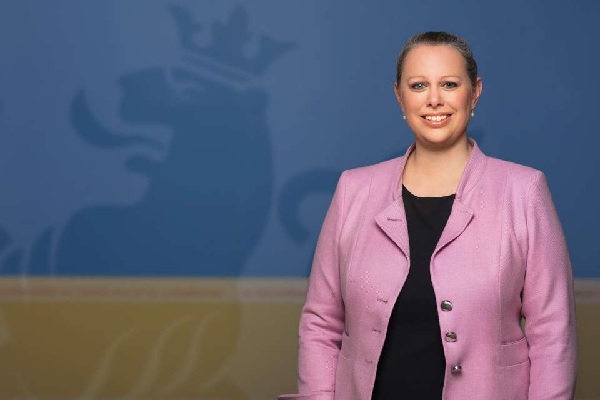 Carole Dieschbourg, Luxembourg's Minister for the Environment, Climate & Sustainable Development;
Credit: SIP
Carole Dieschbourg, Luxembourg's Minister for the Environment, Climate & Sustainable Development;
Credit: SIP
At a joint press conference at the COP26 summit in Glasgow on Thursday, Luxembourg's Minister for the Environment, Climate and Sustainable Development, Carole Dieschbourg, presented a declaration for a nuclear-free taxonomy together with ministers from Germany, Austria, Portugal and Denmark.
Minister Dieschbourg made it clear that for Luxembourg, nuclear power cannot be labelled and marketed as a sustainable technology. She stressed that the inclusion of nuclear power in the European Union's sustainable finance taxonomy would harm its credibility and its usefulness. According to the supporting countries, nuclear power is a high-risk and non-sustainable technology, and is consequently not a solution to the problems of climate change.
Luxembourg's Environment Minister emphasised: "To keep the 1.5°C temperature goal in focus, a deep transformation of the emitting sectors is needed in this decade. Nuclear power is not able to contribute to a fast and sustainable transition. Renewable energies are the building blocks for a sustainable, cheaper and safer future. Nuclear projects are terribly expensive and have several critical costs such as insurance, waste management and waste storage, that are still not accounted for".
"An inclusion of nuclear power in the list of 'sustainable activities' of the EU taxonomy would represent a labelling fraud", continued Minister Dieschbourg. "The trust of private and institutional investors who choose sustainable investment to support the energy transition in a positive way, would be massively damaged if their investments end up in supporting the nuclear energy sector through the backdoor".
The minister stressed that, for Luxembourg, transparency, market integrity and citiziens' trust in the green finance process are crucial for a sustainable energy transition. She concluded: "Including nuclear energy in the taxonomy would have massive negative consequences for the credibility, the safety and the transparency in Europe and around the world".








